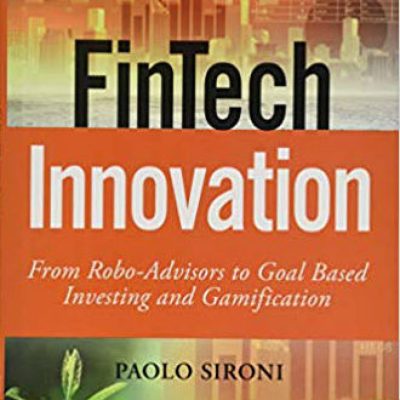Back in February, we ran an article on QA-Financial entitled: “Are Regulators Right to Focus on Robo-Investing?”
The answer is, well, maybe. While asset management firms are making big investments in robo-investment platforms, the advice those platforms are giving, together with the algorithms that are driving that advice, are actually rather straightforward. The modern portfolio theory on which they are based is widely accepted.
 Except … there are those advocates of robo-investment who believe that things will, and should, become more complex. Paolo Sironi, head of thought leadership for IBM’s wealth management analytics division, believes investors should be engaging more deeply in the game of investment, he argues; not just sitting back and accepting advice.
Except … there are those advocates of robo-investment who believe that things will, and should, become more complex. Paolo Sironi, head of thought leadership for IBM’s wealth management analytics division, believes investors should be engaging more deeply in the game of investment, he argues; not just sitting back and accepting advice.
Asset managers, he argues, should be moving to probabilistic scenario optimisation (PSO), which employs stochastic scenarios to derive multiple targets based around different time periods. PSO should enable better goal-based investment, and help investors think harder about exactly how their retirement will work in practice.
To keep costs down, wealth management firms may spend less on their own platforms and more on delivering “robo-as-a-service” via APIs, says Sironi. And artificial intelligence software such as IBM’s Watson will be used during the on-boarding process to establish “cognitive dialogues” with clients that will seek out patterns of information that can flag up potential problems with investors who lack technical proficiency.
Sironi has now published his book on the subject, and it should be read by anyone who is interested in the future of asset management. Sironi is evangelical about the potential of automated advice to democratise markets for investors and their tech-savvy advisers to become the price-makers in investment markets.
Robo-Advisors version 2.0, he believes, will also appeal to increasingly sophisticated investors, such as family offices, which will be become digitised and will use automated investment advice for specialised services beyond financial investments.
The book is a useful reminder that all investment decisions contain elements of emotion. Perhaps it is better to embrace that as a driver of financial innovation rather than attempt to create neutral advice, which can only really mean inflexible and over-simplistic investment recommendations.
“A well-designed Gamification experience would ignite players’ emotions and craft an adequate balance between frustration (e.g. simulation of a financial loss) and price (e.g. achievement of a financial goal,” Sironi writes.
There is plenty here for the disruptors and the disrupted to think about. Sironi is no dry academic: he built his own fintech company and sold it, and the style and structure of his arguments are direct and business-like. Arriving at his conclusions, Sironi he also takes us through the detail of both the technology and the investment theory – sufficient detail for this to be the only book you need right now on the subject of robo-investment.
* 2016, John Wiley & Sons, Ltd, ISBN 9781110226987




